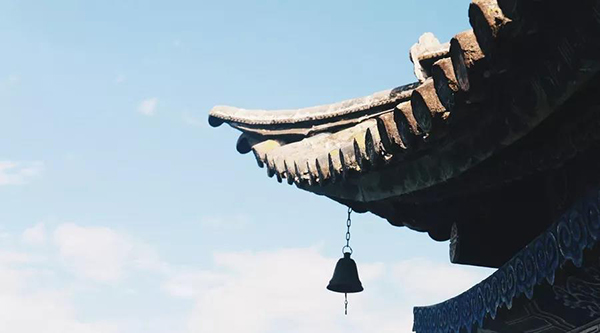The history of human beings is the history of leaders, so it is fair to say, this law is also fully applicable in business management.
In fact, we have seen how often a leader can make or break a business.
Why does this happen?
Just think about the qualifications a leader needs.
In today's post, Mr. Inasao details what qualities and ways of thinking a top leader must possess. Read it patiently and you will gain a different understanding.
01
What are the qualifications of a leader?
Lu Xinwu of China's Ming Dynasty wrote about the qualifications needed for leaders in his book The Language of Moans. He divided the qualifications of leaders into three categories: profoundness is the first qualification, noble and noble is the second qualification, and intelligent people are the third qualification.
We tend to use the so-called "smart talkers" who have talent -- strategic thinking, skills, and eloquence -- as leaders.
For example, the government tends to promote "talents" who have passed the national civil service level examination and are selected by thousands of people to the positions of administrative leaders. However, according to Lu, this ability to be intelligent and argumentative is only the third degree.
Such an ability may be necessary and sufficient for a position as an intermediary, but when it comes to leading an entire group, it is not enough.
As mentioned above, the leader of a group must have the courage to lead the group in the right direction in any situation.
However, courage alone is not enough to be a true leader.
As Lu Xinwu put it, "A noble hero is a second class qualification." Having courage and courage is only a second class qualification for a leader.
The most important qualification of a leader is, as Lv Xinwu said, "deep and thick is the first qualification".
Instead of being superficial and grandiose, leaders need to be thoughtful and dependable. In a word, a leader must be a man of high character.
In other words, Lv meant that a leader should have ability, courage and personality at the same time, but in order of priority, personality comes first, courage comes second and ability comes third.

02
As an operator, what are the criteria?
In my opinion, in order to lead the group better, the leader also needs to set the vision and goals based on the above qualifications.
At the same time, the goal vision must be based on the mission.
That is, the company or department must have a clear "mission."
If it's just to improve performance, it's enough to set goals.
If the goal of an enterprise is the sustainable development of the organization, it must require leaders to rack their brains to think about "what is the purpose of achieving the goal" and "what is the significance of achieving the goal for the company, the society, the country, and even for human beings?
Leaders must keep asking and thinking about this fundamental question in order to define a "mission" that everyone can relate to and deserve.
Moreover, it is essential that leaders have clear benchmarks against which to judge.
One of the first questions I had at the start of my business was, "What are the benchmarks you should use as an operator?"
At the beginning, Everything at Kyocera had to be dictated by me. "This job is improved like this, told to clients like this, and this job is promoted like this."
So, though a small company with just 28 members, there was always a pile of business for me to judge.
We are a small business that has just been established. The slightest hint of trouble may disappear. If I make a wrong judgment, the business may face an existential crisis.
If I have experience running a business, I can make a judgment based on past experience, "It used to be the same, so this is fine. That failed in the past, so we can't repeat it.
However, at the time I was only a young man of 27 with no knowledge or experience of running a business, so there were no benchmarks to judge.
After a lot of hard thinking, I finally decided to base my judgment on what my parents and school teachers had taught me when I was a child, that is, with extremely simple ethics, "what we should do and what we shouldn't do as human beings" as the basis for judging right and wrong.
I was determined to be right as a man and to carry out these principles with all my heart.
My judgment benchmark is so unadorned, but in retrospect, it is with the strong support of these unadorned benchmark that Kyocera never went into the wrong operation, and has been able to develop smoothly.

03
Everyone can understand the equation of life
I've often wondered how someone like me, who graduated from a country university and started a business with my bare hands, would spend my life working with people who had graduated from top universities and worked in big companies.
At the same time, I often think about how people can understand the channel to show these simple truth. So I invented an equation:
The result of life and career = way of thinking × enthusiasm × ability
From birth to death, the outcome of a person's life and career depends on the multiplication of three factors, namely, the "ability", "enthusiasm" and "way of thinking". That is, the outcome of life and career depends on the "ability" that the person has, the "enthusiasm" for life and career, and the "way of thinking" to treat life and career.
I propose that a leader must first have "ability". Leaders must think strategically and tactically and have the expertise to do the job.
At the same time, by "ability" I don't mean only a smart mind, but also a healthy, strong body adapted to high-intensity work.
However, some people, although capable, but can not make people feel his "enthusiasm". This tendency was particularly evident among highly talented students who graduated from prestigious universities.
They think they are clever and often refuse to make serious and practical efforts.
On the contrary, some people, although not clever enough, but from dawn to dusk, bury their heads in the hard work, at the risk of destruction, full of "enthusiasm" for work.
"Competence" and "passion" are rated on a scale of 0 to 100, and they are not added up but multiplied together, the results of which will have a huge impact on your life.
According to this thinking, even if the ability is not outstanding, but as long as "pay no less than anyone else's efforts," it is possible to exceed the ability of excellent people, excellent results.
There is also the element of "way of thinking" to consider. The scoring range of thinking mode is -100 ~ +100.
Because it is multiplication, once the way of thinking is negative, even if it is only a tiny negative, the result of his life and work will immediately become negative.
As a result, the higher the value of "ability" and "enthusiasm", the more negative the result becomes.
In other words, the equation speaks volumes about the importance of the "way of thinking".
Some people, though full of "ability" and "enthusiasm", are always cynical and think that the world is full of injustice and conflict. Since they live in such a society, they are simply cynical and even take terrorist actions to revenge the society.
Even though such people originally have lofty ideals, they unconsciously become self-righteous. In order to realize the so-called ideal, they will choose selfish means, and the result of their life will inevitably become negative.

04
The importance of the way you think
No matter how we intend to live our lives and become leaders, we must first have a "way of thinking" that fits with it.
It is a person's freedom to have his own "way of thinking", outlook on life and philosophy. However, the resulting life consequences must also be borne by the individual.
Yet there was little education about life at school, so people tend not to think so deeply about their own so rather live so muddleheaded and aimless, so resigned to life.
I deeply feel that it is necessary to explore the way of thinking and philosophy that one should have in life from a young age.
When I founded my company at the age of 27, I summarized the things I should do as a human being one by one and compiled the "Kyocera philosophy". Among them, I recorded dozens of "life should be the way of thinking" that I realized in my work practice.
To sum up this way of thinking in one sentence is just what it means to be right as a person. That is to be a man should abide by the universal truth as the principles of life.
At the same time, I also took these principles as kyocera's "philosophy", and repeated them to employees, trying to share them.
Whenever I talk about these principles, some people are quick to resist: "I'm free to think the way I want to think. Why is it necessary to follow kyocera's way of thinking when entering kyocera? It's a clampdown on the individual mind!"
This is very distressing to me. "It's certainly a matter of personal freedom to have a certain way of thinking, but if you let everybody's way of thinking go, you're not going to get the job done."

However, it won't be easy to get employees to accept and accept these ways of thinking.
We can use "mountaineering" as a metaphor for "how to think".
If you want to climb the nearby low hills, just with the mentality of an outing, wearing regular clothes, shoes can be achieved.
But if you want to conquer snow mountains like the Alps, you have to be equipped to do it, let alone mount Everest, which requires climbing technology, all kinds of equipment and strict training.
Just as different mountains require different preparations and equipment to climb, the life and business goals a person pursues are different, and the realm of his "way of thinking" is also completely different.
In other words, the higher the goal the enterprise pursues, the higher the thinking mode the employees need to hold.
Determine the "goal" you want to pursue, and then determine the "way of thinking" you need to achieve it.
Kyocera has always set high goals, so once the company got on track, I scrupulously adhered to my Puritan "way of thinking."
I've also been vilified by media reporters for saying "Kyocera is crazy."
At the same time, some operators said:
"It's the style of our company to work happily and run easily. "Mr. Inasheng's style is too austere and demanding, but it's our laid-back company that makes our employees feel good."
I don't argue with that, because I'm looking for a business that's very different from people who want to live a relaxed and happy life and run it in a relaxed and happy way.
My goal is to open up a new world of precision ceramics that no one has ever set foot in, and make Kyocera the no.1 ceramics company in the world.
It's impossible to build a company like this just by thinking in a playful, understated way.
To achieve this goal, it is inevitable to choose the road of hardship.

05
A leader must have a lofty state of mind
Whether it is a startup or an established company with a long history, its leaders tend to be "competent" and "passionate".
Also, their "way of thinking" wasn't bad at first so they could achieve great success and so the business could grow.
However, when they succeed, they tend to wallow in status, wealth, honor and personal affection for their friends and family, and their thinking as leaders deteriorates to the point where they pull the trigger for corporate downfall.
The so-called "success is nothing, failure is nothing", the door to success is the leader, leading to the decline of the enterprise is also the leader.
As mentioned above, a person is free to choose his way of thinking as long as he is willing to bear the consequences, but only the group leader represented by the business operator cannot have this idea.
The way a leader thinks affects not only the individual, but also the destiny of the employee and even the society. So leaders of the head groups can by no means consider it their freedom to choose how they think.
For the happiness of the group and the prosperity of the society, it is the duty of the leader to have a noble and profound way of thinking.
In the enterprise, not only the top management, even the leader of the team, can not choose their own way of thinking.
There is an old Chinese saying that "only modesty can make one happy and lucky".
To lose humility is the greatest loss of life and business. Even if successful, also want to content, do not forget modest, must because of their own happiness and always be grateful to the people around.
Also important is the altruism to make others happy.
When you are successful and prosperous, as long as you have "altruistic" thoughts, you will never set the fuse for your life. The history of human beings is the history of leaders, and it is fair to say that this law is also fully applicable in business management.
Prve:Kazuo Inamori: Born human, what is right? [2020-08-11]
Next:None


